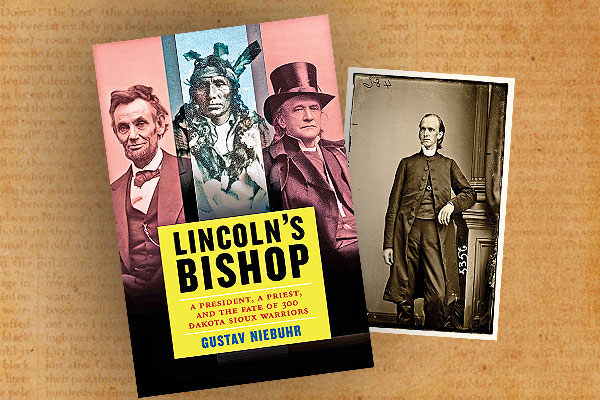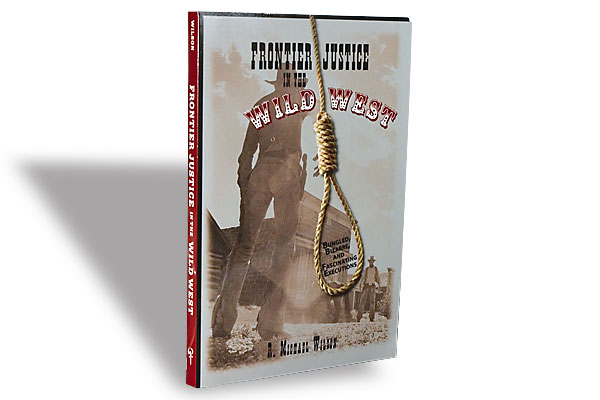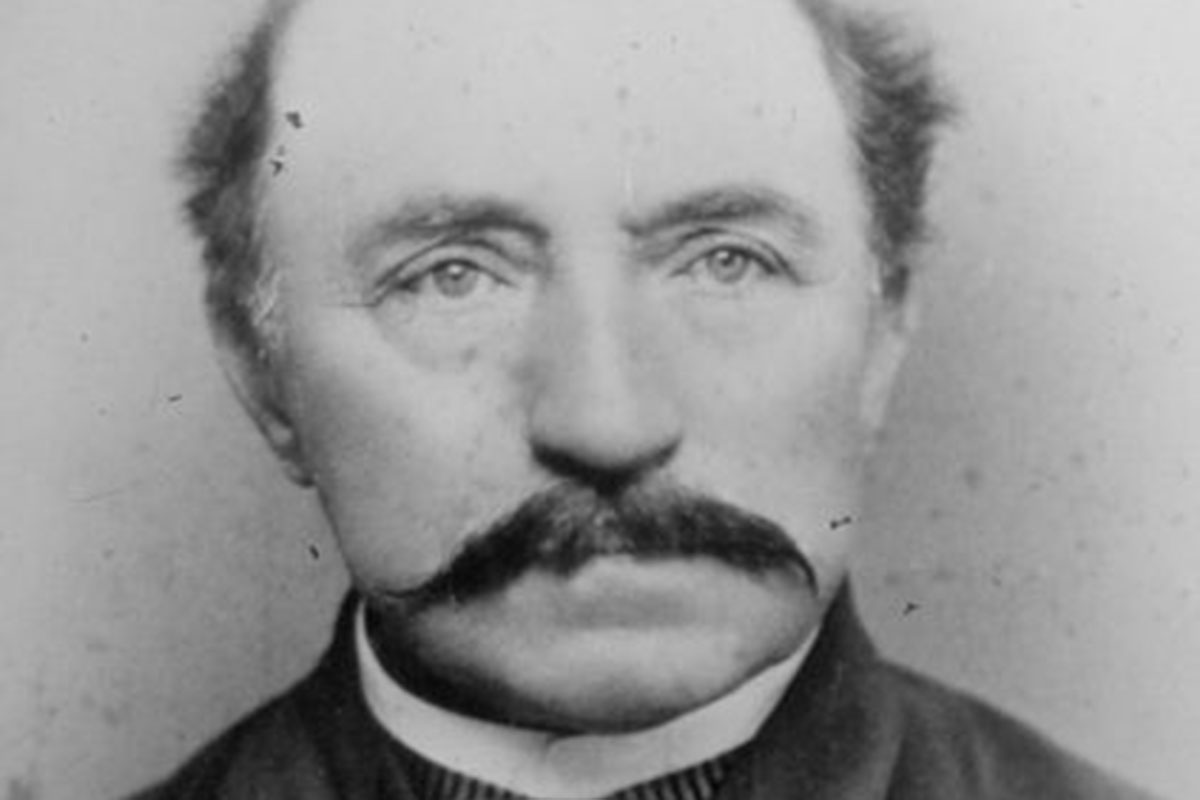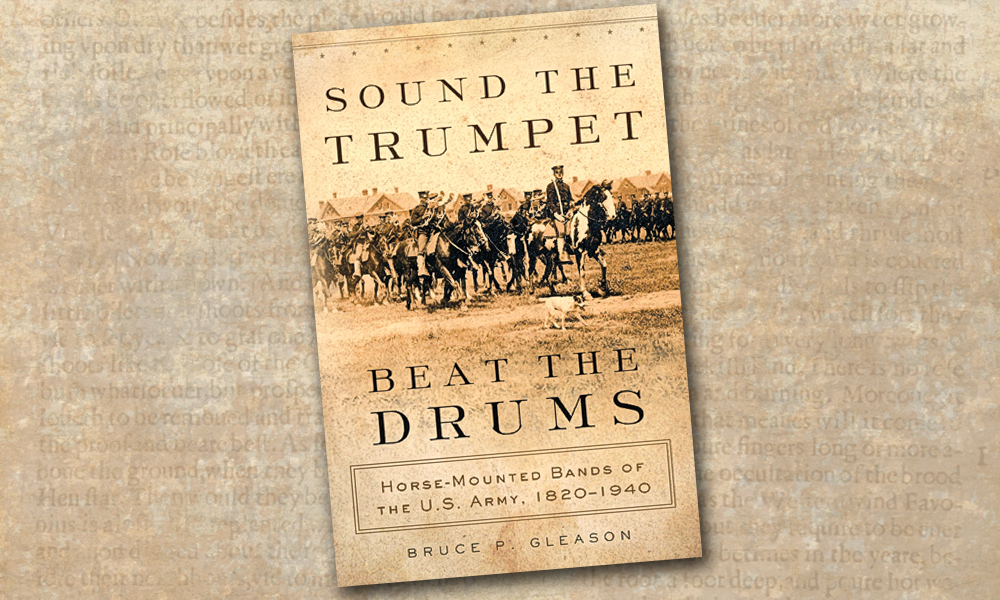 In August 1862, President Abraham Lincoln’s Army of the Potomac was being fought to a standstill by Gen. Robert E. Lee’s Army of Northern Virginia when the Dakota Sioux launched a punitive war against the lightly defended Minnesota settlers, leaving hundreds dead in their rebellion. Lincoln suddenly found the Union vulnerable East and West, and the embattled commander-in-chief was in a struggle to save the nation.
In August 1862, President Abraham Lincoln’s Army of the Potomac was being fought to a standstill by Gen. Robert E. Lee’s Army of Northern Virginia when the Dakota Sioux launched a punitive war against the lightly defended Minnesota settlers, leaving hundreds dead in their rebellion. Lincoln suddenly found the Union vulnerable East and West, and the embattled commander-in-chief was in a struggle to save the nation.
Gustav Niebuhr argues brilliantly in Lincoln’s Bishop: A President, a Priest, and the Fate of 300 Dakota Sioux Warriors (HarperOne, $26.99) that Episcopal Bishop Henry Benjamin Whipple’s moral argument on behalf of the Indian rebels resonated with Lincoln’s moral convictions on the abolition of slavery and steadfast defense of the U.S. Constitution to the extent it influenced his determination to emancipate the slaves on January 1, 1863.
Niebuhr, a professional journalist, professor of journalism at Syracuse University and founding director of the Carnegie Religion and Media Program, is one of the few author’s during the current sesquicentennial of the Civil War to synthesize a historical topic that intellectually bridges a Western Indian war—and the religious moral crusade for equal rights for Indians—with the nation’s struggle to save the Union and free the slaves.
According to Niebuhr’s book, Bishop Whipple is the enduring force behind the moral crusade on behalf of the American Indians on the Western frontier. “Whipple acted as a one-man movement, seeking respect and protection for American Indians to replace the monstrous fraud and injustice to which he saw them subjected.” In Lincoln’s Bishop, Niebuhr eloquently details Whipple’s mission to seek equal justice under the law for the Indians. His pleas were as passionate as any minister leading the abolitionist movement; and, it was culminated in his greatest victory over injustice—influencing Lincoln to commute the death sentences of 265 of the 303 Dakota Sioux.
Similar to Andrew Graybill’s The Red and the White and Elizabeth Fenn’s Encounters at the Heart of the World, Niebuhr’s Lincoln’s Bishop is as much a 21st century morality tale as it is a recounting of a 19th century tragic conflict between whites and Indians. Niebuhr eloquently provides the historic parallel between Rev. Martin Luther King’s crusade for justice and equality for blacks against ingrained, institutional prejudice in the 1950s and 1960s, and Bishop Whipple’s passionate plea for moral treatment of American Indians and their plight as similar to enslaved black Americans. Niebuhr’s research and conclusions also reveal the intensity of Whipple’s moral crusade and access and influence on Lincoln as equally important as King’s relationship a century later on President John F. Kennedy, all of whom, but Whipple, would be martyred by an assassin’s bullet.
Indeed, like Rev. King, as we celebrate the 50th anniversary of the Civil Rights Act, Whipple’s missionary and zealotry on behalf of the oppressed and exploited remains controversial, even in the modern Episcopal Church, which has yet to honor him as an Episcopal Saint for his life as a crusader for justice. Yet, even without the Church’s formal recognition of Whipple’s valiant service, his actions have not gone unnoticed. As Niebuhr so succinctly summarizes from the Talmud: “whoever saves one life, it is as if he has saved the whole world.”
— Stuart Rosebrook






